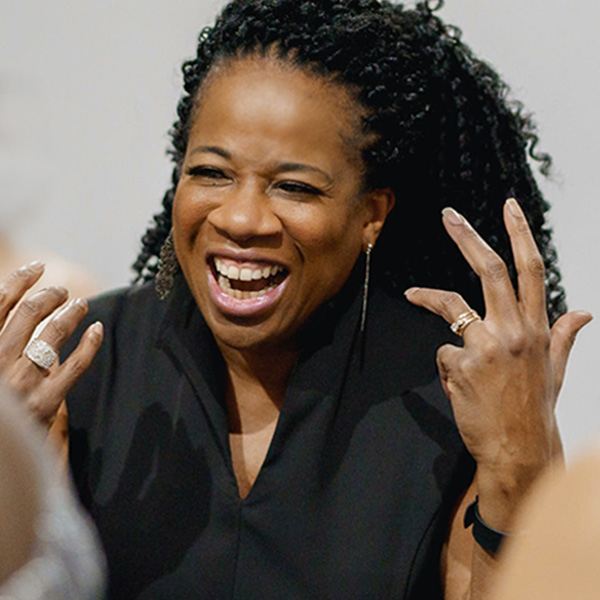“I’ve felt like I was an ‘emerging director’ for a really long time,” Rebecca Taichman, BA’92, says. “But I think that’s passed now.”
Yes, winning a Tony Award for Best Direction of a Play will do that.
Taichman was honoured last month for Indecent, a play that tackles anti-Semitism, homophobia and censorship. The production was inspired by a separate play and obscenity trial that occurred 110 and 94 years ago, respectively, but Indecent could not be more timely or relevant.
Taichman laughs easily and generously shares praise with colleagues. Over the early summer, she was run off her feet with all the publicity and officialdom. So what does winning a Tony change? “I don’t know yet,” she laughs. “I think it’s an enormous honour, and it’s very meaningful that it’s entirely your peers [voting]. I feel totally humbled. Truly, just to survive in this business is hard enough. I feel incredibly lucky. And also exhausted.”
And she was “authentically shocked. I don’t know if you watched [the ceremony], but if you did, you’ll see the experience of a genuinely shocked person! I couldn’t hide it. Most shocks we experience are painful – this was a glorious one.”
Taichman’s ‘overnight success’ took 25 years of hard work, beginning with her time in McGill’s theatre program.
“I really wanted to be an actress, and did a lot of [acting] as a student. I got to be onstage and know what that was like. And I think I was pretty bad. Even my mother admits that now. But I had no doubt that I was going to be spending my life in the theatre.”
In her last year at McGill, she directed her first play, the one-act Danny and the Deep Blue Sea. “And I loved it, and was surprised to learn that it came naturally and was very exciting.”
Indecent was a labour of love, one she had been shaping and working to bring to the stage for 20 years. She happened upon Polish-Jewish dramatist Sholem Asch’s 1907 play God of Vengeance in graduate school, while working with dramaturge Rebecca Rugg at the Yale School of Drama.
Asch’s play, a remarkable detonation of heroic dissidence for its era, is set in a brothel and featured Jewish prostitutes and a lesbian love story. Major voices in the Jewish community did not approve.
Six weeks after it opened in New York in 1923, the entire cast was indicted and convicted of obscenity. Indecent, written by Taichman’s collaborator, playwright Paula Vogel, recounts that story and the cultural impact of Asch’s work.
When Taichman discovered transcripts of the trial at Yale, “I sort of fell down this rabbit hole, and became pretty obsessed with it. And I was trying to not let the memory be forgotten, because it seemed like it might be.
“So it was a pursuit with a larger desire. But never would I have dreamt that it would reach this scale. Beyond my wildest dreams.”
And given what we’re watching unfold in 2017, apropos today. Originally thinking of a period piece set in New York, Vogel “had the idea to make it a much larger story. And we’ve watched it tragically become more and more relevant, in eerie and terrifying ways.”
Asch stands as a singular anomaly, a courageous one.
“He was an amazing man. That instinct proved to be true to him throughout his entire life. Not just as a young man who wrote this audacious play as a one-off; he spent his entire life ahead of his time, asking the really painful, dangerous questions, writing things that the Jewish community turned against him for, but was written out of tremendous love for the Jewish community.”
As a director, Taichman has developed a striking visual signature – visit her website to see the expansive and magical use of colour in the ravishingly staged Twelfth Night.
“I don’t know why I think visually,” she says, “I just do. My way into telling a story is finding a visual vocabulary for it. It’s very intuitive. I have to find the wormhole to fall into the world we’re going to create. And that’s always found in collaboration with designers. Part of it is who I’m lucky enough to work with.
“And Indecent really is truly one of those rare examples [of when you fully realize onstage what you saw in your imagining]. Partly because I got to do it over and over again, which you don’t usually get to do. What was on Broadway now was the fourth production with the same cast, so we really got to develop the piece together, and refine and refine and refine.”
Fortunately for those who couldn’t make it to the Cort Theatre on Broadway during the production’s run, the play has been immortalized, filmed for PBS and will air on the Great Performances series in autumn.


